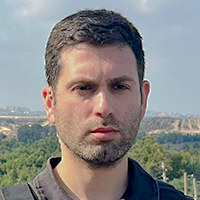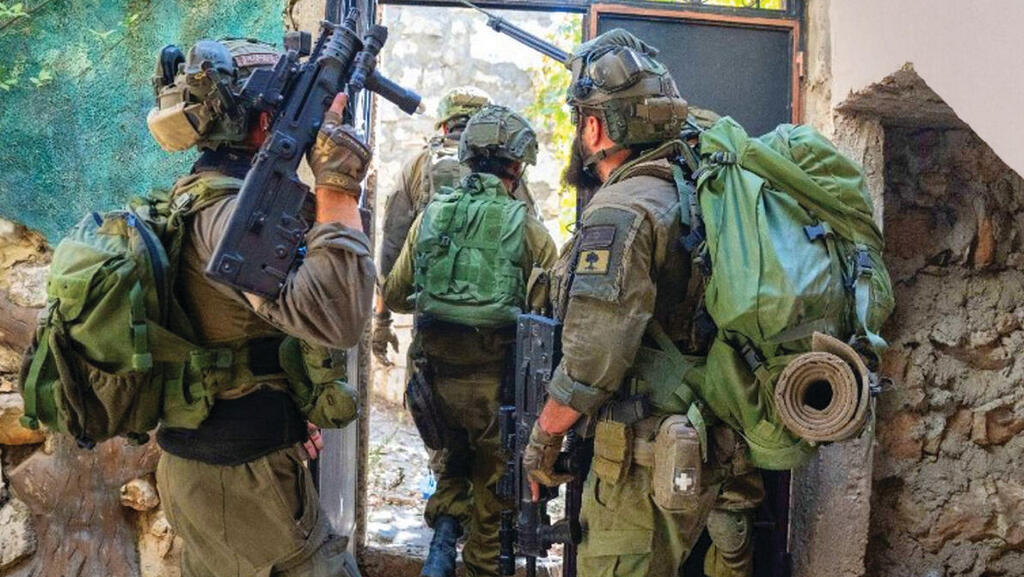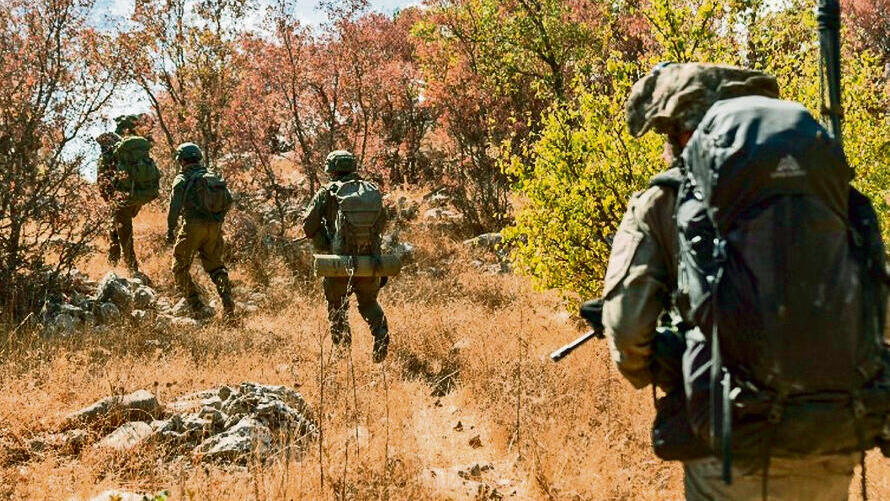The IDF reached the height of its ground operation in southern Lebanon on Tuesday, with four divisions operating in the region for the last three weeks, effectively covering all Hezbollah sectors in the area. The IDF is also deploying new brigades, mainly of reserve soldiers, to eliminate the threat of Hezbollah's plan to invade the Galilee.
The IDF has also in recent days advanced to larger towns near the border and the deepest points of the ground operation, which remains confined to areas close to the border. The forces have observed that hundreds of Hezbollah operatives left in the region are retreating to hide in their terror tunnels, trying to survive until the situation eases.
Hezbollah terrorists captured by IDF forces
(Video: IDF Spokesperson's Unit)
They only emerge from the tunnels in small groups to engage IDF forces if they see an opportunity to set off an explosive device or fire at close range. Soldiers are injured almost daily in these skirmishes, but the numbers are relatively low compared to the war’s scale. According to IDF estimates, dozens of Hezbollah terrorists are killed for each wounded soldier.
A key objective for the troops, as was reported by Ynet, is to capture as many Hezbollah operatives as possible for intelligence extraction during interrogations. Dozens of operatives have already been captured alive and delivered to detention centers in Israel.
Some forces, particularly those from the 98th Division, which were the first to enter southern Lebanon, have moved on to the phase of clearing and flattening munition launch and firing infrastructure targeting the Galilee.
This involves hundreds of structures along the border that oversee Israeli settlements and military outposts, now being destroyed using engineering equipment like D9 bulldozers or via controlled detonations.
The forces have also managed to identify and ascertain the number of launches carried out from each house over the past year toward Israeli towns such as Margaliot, Manara or Metula from each individual building.
Rows of destroyed buildings can be clearly seen in videos captured by drones – these structures had been used by Hezbollah to fire directly or indirectly at Israel over the past few months.
In the final stage of the ground operation in Lebanon, which is expected to conclude within a few weeks according to the IDF Northern Command's plan, the military aims to destroy thousands of dunams of fortified wooded areas, mainly in the western sector, through unique combat engineering efforts.
Some of these methods will be innovative, even compared to similar clearing operations carried out in the buffer zone the IDF has been establishing along the Gaza border over the past year.
The IDF Northern Command is already formulating a plan to enforce and maintain these achievements following the ground operation, as well as in the event of a political agreement or cease-fire, if reached. This will primarily involve kinetic responses to any violation or renewal of terror infrastructure near the border.
However, the implementation of this plan during routine times will depend on lawmaker approval, as any such strike could escalate into a day or two of fighting in the north, similar to the "rounds" of conflict southern residents have experienced since the early 2010s.
According to Northern Command estimates, the IDF has so far neutralized about one-third of Hezbollah's arsenal, including rockets, missiles and drones. The military said its forces have overpowered the Radwan Force’s front-line attack zones as part of the ground operation, though several more weeks will be required to complete these missions.
IDF data indicates that seven Hezbollah battalion commanders, 21 company commanders and over 25 platoon leaders or deputy company commanders responsible for villages in southern Lebanon have been eliminated during the ground operation and the weeks leading up to it.
"Most of Hezbollah's commanders, from the top leadership down to the tactical level, have been hit or killed," the military estimated. "Overall, about 1,200 operatives have been killed in the ground operation, with over 2,000 in total. A diplomatic effort will be needed to complement the military action, and the IDF believes Hezbollah won't be allowed to return to southern Lebanon."
Get the Ynetnews app on your smartphone:







